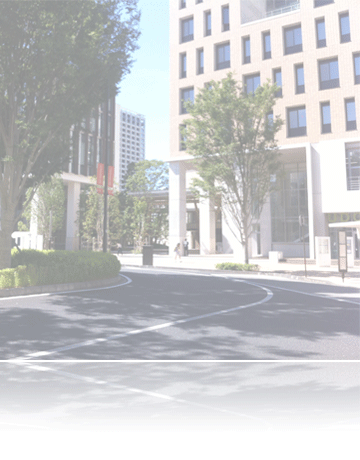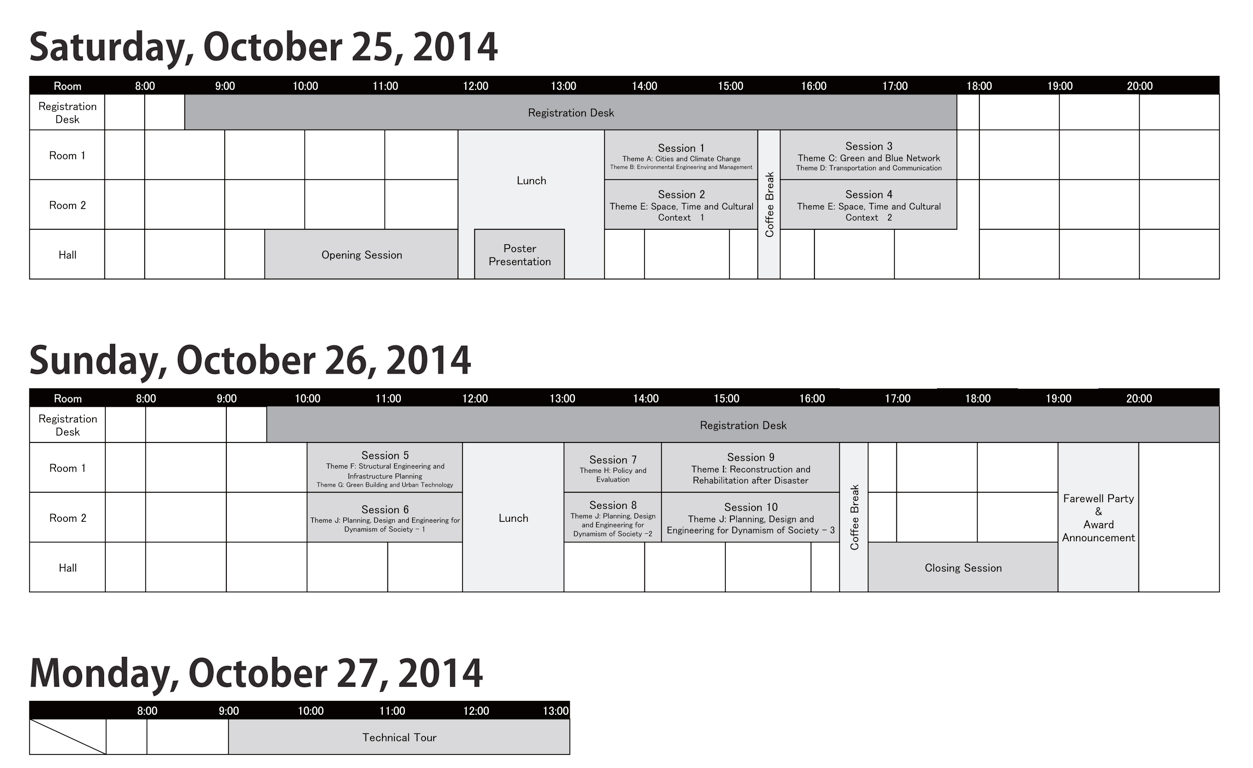Friday 24 Oct
16:00-18:00 Registration Open (at Hotel Lobby)
18:00-20:00 Welcome Reception (at Oak Village Kashiwa-no-ha)
Saturday 25 Oct
8:30 Registration Open
9:30-11:50 Opening Session
9:30- 9:45 Welcome Address by Prof. Atsushi DEGUCHI (Chair, IASUR Conference Organizing Committee)
Prof. Nobuo TAKEDA (Dean, Graduate School of Frontier Sciences, UTokyo)
9:45-10:15 Keynote Speech by Prof. Hidetoshi OHNO (UTokyo)
10:15-10:45 Keynote Speech by Prof. Zhenwei PENG (Tongji Univ.)
10:50-11:50 Panel Discussion “Challenges toward Sustainable Society”
Prof. Benito M. PACHECO (Philippines), Dr. Niramon KULSRISOMBAT (Thailand)
Prof. Kuang- Hui PENG (Taiwan), and Prof. Jung-Hyung LEE (Korea)
11:50-13:30 Commemorative Photograph / Lunch Break
12:00-13:00 Poster Presentation
13:30-17:45 Afternoon Sessions: Oral Presentation
13:30-15:20 Session 1 / Session 2
15:20-15:35 Coffee Break
15:35-17:45 Session 3 / Session 4
(18:00-19:00 Board Meeting)
Sunday 26 Oct
9:30 Registration Open
10:00-11:55 Morning Sessions: Oral Presentation
10:00-11:55 Session 5 / Session 6
11:55-13:00 Lunch Break
13:00-16:40 Afternoon Sessions: Oral Presentation
13:00-14:10 Session 7 / Session 8
14:10-16:20 Session 9 / Session 10
16:20-16:40 Coffee Break
16:40-19:00 Closing Session
16:40-16:55 Keynote Speech by Prof. Bin LU (Peking Univ.)
16:55-17:10 Keynote Speech by Assistant Prof. Muhammad Sani Roychansyah (Gadjah Mada Univ.)
17:10-18:50 Panel Discussion “Looking Toward the Future of IASUR”
18:50-19:00 Closing Remarks by Prof. Atsushi DEGUCHI (Chair, IASUR Conference Organizing Committee)
Prof. Bin LU (Peking Univ.)
19:00-20:00 Farewell Party and Award Announcement
Monday 27 Oct
Technical Tour (9:00 to 13:00)
Guided to UDCK, Kashiwa-no-ha smart city and Suburban Development Site in Tokyo Metropolitan Areas




















